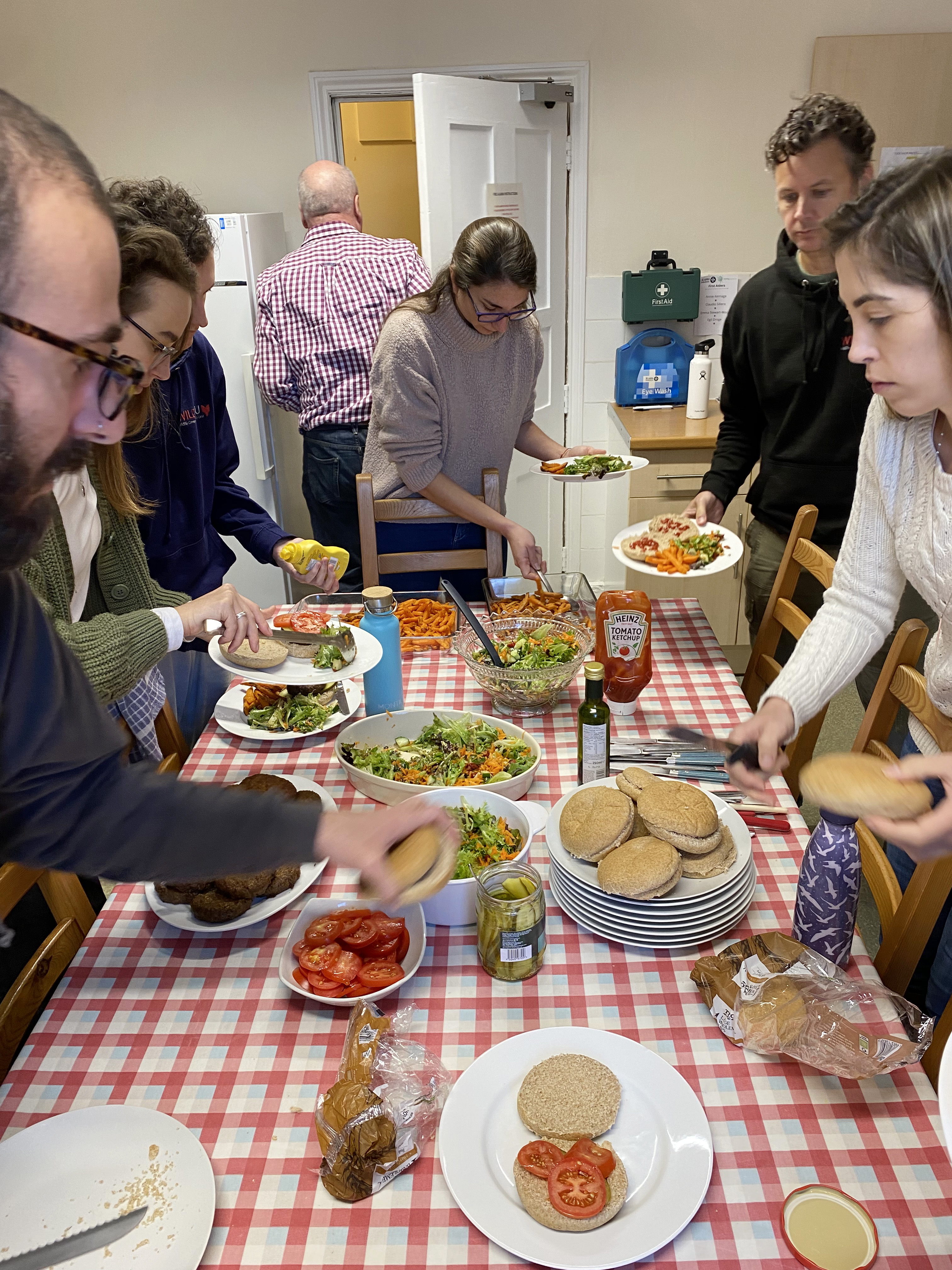News
Food for thought – insight into the environmental benefits (and more) of being vegan
Faced with the frequent questions, “You’re vegan? Why don’t you eat meat and dairy?”, Dr Jan Kamler flips it around and asks, “Why DO you eat meat and dairy.” He recognises that people from all corners of the world have different reasons – including taste, nutrition and cultural reasons and that choices are often based on beliefs and feelings that may be unmoved by science or evidence. However, he is enthusiastic about sharing his insight and experience, and as such, has developed a presentation to give to new students, staff members and visitors that he often delivers while the audience is tucking into a delicious vegan feast he has prepared. Several WildCRU members were lucky enough to enjoy this experience in Tubney recently as part of the University’s ‘Green Impact Programme‘.
His opening list of reasons NOT to eat meat and dairy include the loss of habitat, depletion of freshwater resources and significant contribution to global warming caused by livestock farming; replacement of biodiversity with livestock and poultry; persecution of large carnivores; reduction of many wild species populations due to bushmeat hunting; threats to human health (from pandemics to cardiovascular diseases) and the fact that there are numerous plant-based alternatives which have the same protein content and taste.
A dramatic point he makes is that around 55% of crops grown around the world are currently used for cattle feed. Given that in feedlots, cattle consume 6kg of grain for every 1kg of weight gain – an 84% loss, effectively 46% of all crops grown worldwide end up as cattle manure! He also highlights that at least 25% of all global warming is caused by the livestock business, so asks, “Why don’t we contribute to carbon offsets every time we eat meat or dairy?” He presented numerous statistics from various sources – some of the figures are included here.
Looking at things positively and proactively, Jan outlined plant-based alternatives – such as the veggie burgers he served and the various ‘superfoods’ he consumes to ensure he gets all the protein, vitamins and minerals needed. These include goji berries, raw cacao, spirulina, hemp seeds and coconut. He believes that a healthy vegan diet can be achieved at no higher financial outlay than one including meat and dairy. Food for thought!
You can find out more about veganism from:
https://www.vegansociety.com/
https://vegan.com/
https://veganuary.com/








